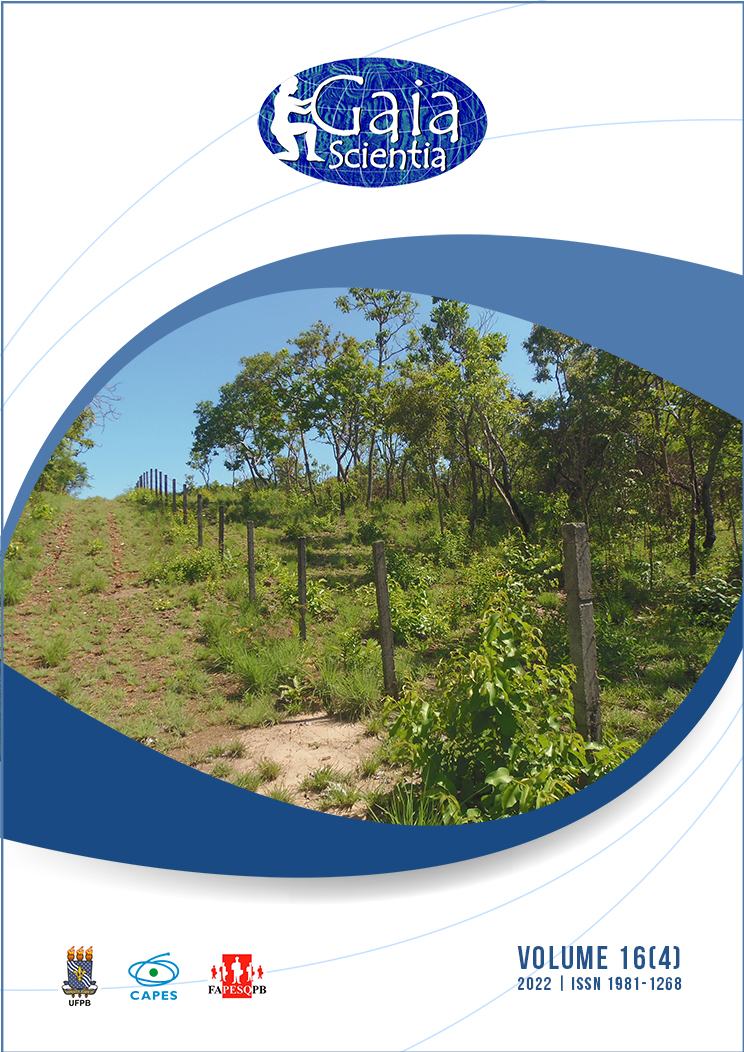Guidelines for environmental planning: a contribution to the Apipucos watershed – Recife, Pernambuco, Brazil
DOI:
https://doi.org/10.22478/ufpb.1981-1268.2022v16n4.64363Abstract
Environmental planning is fundamental in facing the extreme events of climate change and the transformations arising from human actions, which increasingly influence changes in the urban landscape. This article sought to analyze the landscape of the Apipucos watershed, Recife, Pernambuco, based on its sustainability, in order to point out guidelines for environmental planning. The study area, Microbacia de Apipucos, is located in the northwest zone of Recife, with high population density and fragments of protected areas. Classified as applied research with primary and secondary data and application of landscape analysis and constellation analysis techniques. The hierarchy of physical-environmental layers and the spread of irregular occupations in vulnerable areas and susceptible to natural disasters were observed, presenting conflicting relationships between social interests and environmental protection. The relationship between the agents, normative instruments and institutions, demonstrated the existence of policies, plans and programs developed with relevant compliance with environmental planning, however lacking articulation. There is an urgent need to connect environmental planning to the objectives of the 2030 Agenda, based on governance, dissemination of knowledge, generation of jobs and income and livability. Finally, it is recommended to introduce guidelines with actions and people in charge in the planning.










